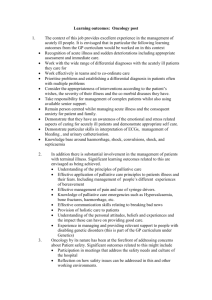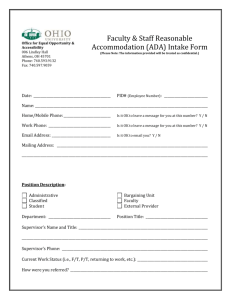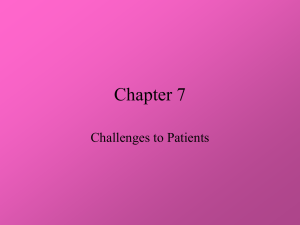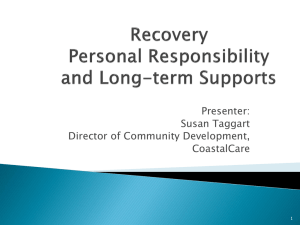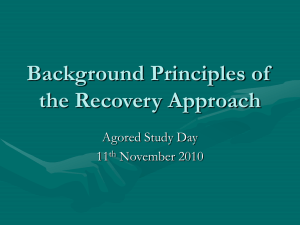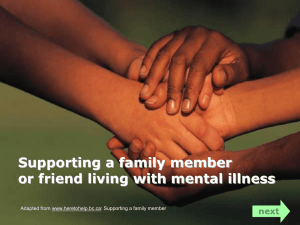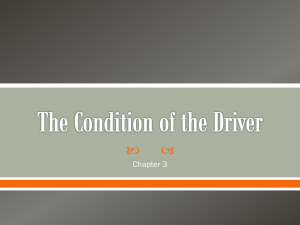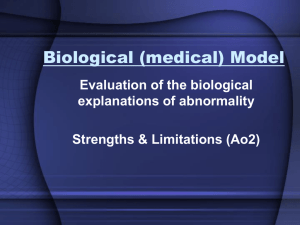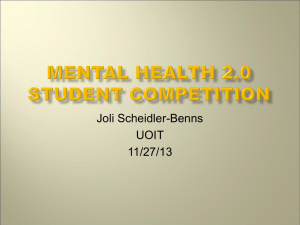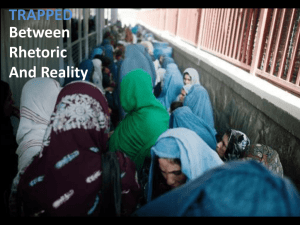Explain different sociological approaches to health and ill
advertisement
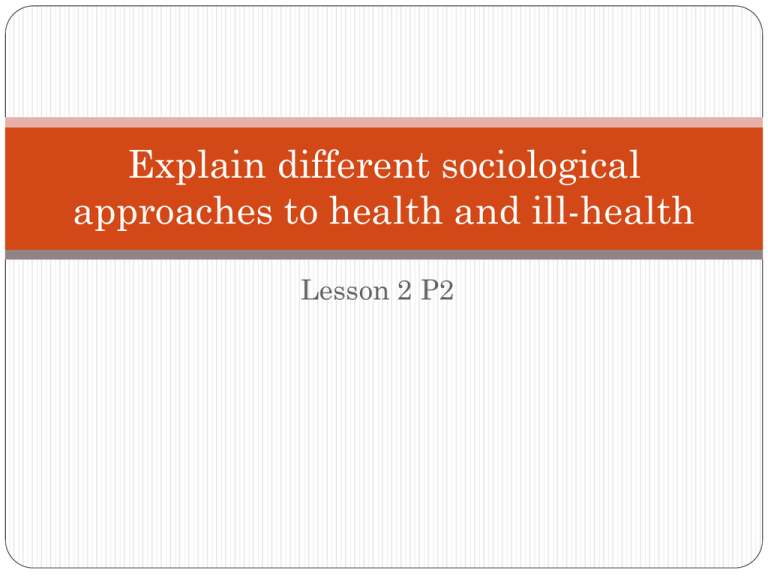
Explain different sociological approaches to health and ill-health Lesson 2 P2 What is health? What is ill-health? Functionalists Society needs a healthy population to function well Illness is a form of deviance When ill, an individual performs a ‘sick role’ A sick role comes with it’s own rights and responsibilities RIGHTS include being exempt from normal activities and obligations and the right to be cared for by others RESPONSIBILITIES include taking steps to get better and re-join society asap and to cooperate with the medical profession MARXISTS The definition of health and illness serve the interests of the powerful Doctors are agents working in the interests of employers Their role is to provide the company with a healthy workforce In a capitalist society, profit is made from products which are bad for our health e.g. tobacco, alcohol, junk food Levels of illness are closely related to a person’s social class Higher levels of illness and lower life expectancy occur in areas of poverty, unemployment and environmental pollution FEMINISTS Focus on male domination in the medical profession and it’s impact on women Argue that a natural process such as pregnancy and childbirth have been medicalised High number of women suffer from anxiety, depression and mental illness which are defined as medical problems, rather than a consequence of women's’ exploited position in the family ‘double day’ - Doyal, ‘triple shift’ - Dunscombe and Marsden INTERACTIONISTS Focus on the process involved in becoming defined as ‘ill’ This definition will vary from person to person Interested in the negotiation between the professional and the patient Therefore, illness is a social construction Focus on the self-image of a person when labelled as ‘ill’ BUT ignore the ‘real’ causes of ill- health such as poverty, environment What is HEALTH? Health comes for the word ‘hael’ or WHOLE There are 2 definitions of health NEGATIVE – absence of illness/disease linked to the medical profession. 1. When’s the last time you visited the Dr. and why? POSITIVE – holistic approach to health refers to a ‘state of wellbeing’. WHO definition of health ‘ emphasises social/personal resources as well as physical capabilities’ 2. What is ill-health? ILLNESS Illness is SUBJECTIVELY perceived (vary from one person to the other) Age differences – what is ‘normal’ to a young adult and an elderly person? Gender differences – men less likely to define themselves as ‘ill’ Class differences – working class more likely to accept higher levels of ‘illness’ than middle class What is ill-health? DISEASE Diseases are clinical conditions defined by medical professionals Eg.???? WHAT IS ILL-HEALTH? IMPAIRMENT and DISABILITY Impairment refers to restrictions on day-to-day activity caused by a physical or mental dysfunction or abnormality Eg. Loss of limb, a sensory impairment or a learning difficulty A disability refers to the restrictions that arise for a person with an impairment because of the attitudes of others and a lack of appropriate services to meet their needs Eg. Physical – no ramps into buildings, doorways too narrow Assignment 7.1 P2 Tips In order to achieve P2, you will need to create a PPT presentation which will provide insight into the concept of health and ill health which you will be presentation to fellow sociology students. You will need to initially provide a definition of the following key terms with examples: 1. 2. 3. 4. 5. 6. 7. Health (negative), Health (positive), Ill health, Disease, Illness, Impairment, Disability. Assignment 7.1 P2 Tips You will then need to provides an explanation of the following perspective view of health and ill health using examples: Functionalism, 2. Marxism, 3. Feminism, 4. Interactionism 1.
